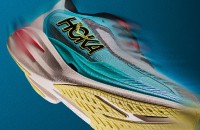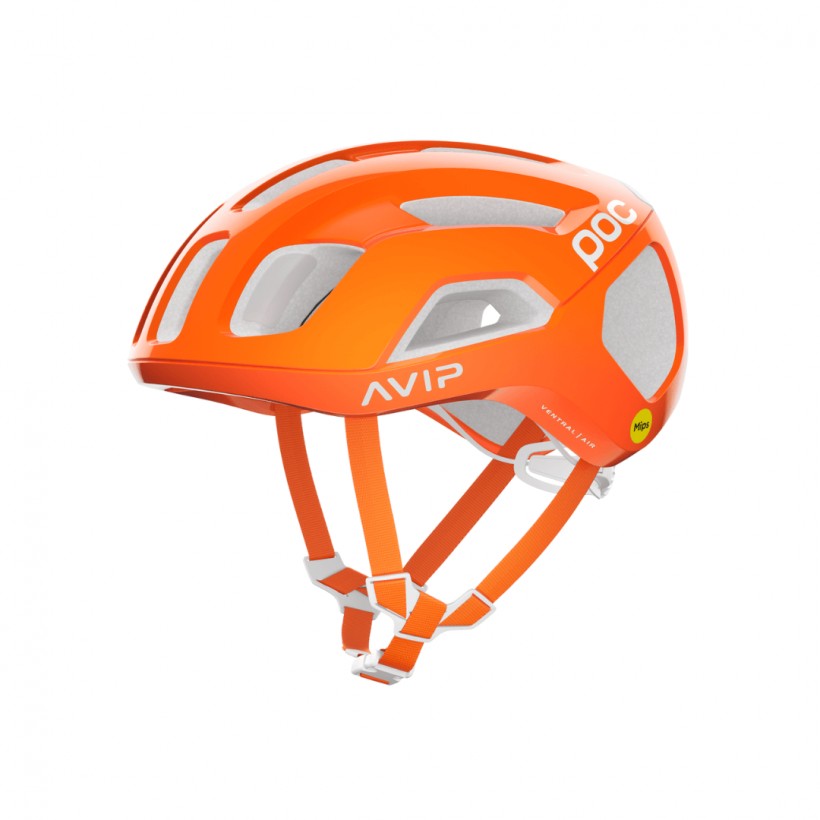Kask POC Ventral Air Mips Pomarańczowy Biały
Wprowadź kod FLASH5 przed finalizacją zamówienia i uzyskaj dodatkowy rabat EXTRA -5% na tym produkcie.
Kup teraz i otrzymaj 29 kwi z Entrega a Domicilio 24h
Główne cechy Kask POC Ventral Air Mips
Kask Poc VENTRAL AIR MIPS łączy aerodynamikę z wysoką wentylacją i bezpieczeństwem. Dzięki precyzyjnym wlotom powietrza i wewnętrznym kanałom powietrznym do kontroli wentylacji zarówno przy niskiej, jak i wysokiej prędkości.
Kask POC Ventral Air Mips
Kask POC Ventral Air MIPS charakteryzuje się bardzo wydajną konstrukcją, która zapewnia świeżość jak nigdy dotąd.
Dzięki precyzyjnym portom wentylacyjnym i kanałom wewnętrznym do kontroli wlotu i wylotu powietrza zarówno przy niskich, jak i wysokich prędkościach, kask zapewnia doskonały efekt chłodzenia całej głowy.
Jego konstrukcja pozwala poprawić aerodynamiczny profil rowerzysty i zminimalizować opory. Specjalne strefy przepływu powietrza poprawiają wentylację i chłodzenie, a aerodynamicznie zoptymalizowana krawędź spływu zmniejsza turbulencje.
Kask został opracowany zgodnie z koncepcją całego kasku POC. Posiada w pełni owiniętą konstrukcję skorupy unibody i wkładkę EPS, oferując idealną równowagę wagi i bezpieczeństwa. Włączenie systemu MIPS poprawia ochronę przed uderzeniami obrotowymi.
Charakterystyka:
- Zalecane zastosowanie: Droga
- System MIPS
- Wyściółka kasku EPS zapewnia doskonałą ochronę i bardzo niską wagę
- Poliwęglanowa skorupa unibody poprawia integralność strukturalną kasku
- System regulacji 360º ułatwia znalezienie bezpiecznego i wygodnego dopasowania
- Innowacyjna konstrukcja Airflow przepuszcza powietrze przez kask, zapewniając wyjątkową wentylację
- Strefy przepływu powietrza w kasku są inspirowane efektem Venturiego, aby zmniejszyć opór
- Ekskluzywna aerodynamiczna konstrukcja zoptymalizowana przez szeroko zakrojone testy CFD w celu zminimalizowania turbulencji
- Resztki powietrza poruszające się wokół kasku są kontrolowane przez aerodynamiczną krawędź spływu 22º
- Specjalne wkładki o wysokim współczynniku tarcia z przodu kasku ułatwiają bezpieczne przechowywanie okularów przeciwsłonecznych
- Certyfikaty: EN 1078, CPSC 12.03, AS/NZS 2063
Technologie:
- MIPS
MIPS to wiodąca technologia płaskiego przemieszczania się w kasku, zaprojektowana w celu zmniejszenia sił obrotowych, które mogą wynikać z niektórych uderzeń. Kiedy głowa obraca się szybko i nagle się zatrzymuje, przyspieszenie obrotowe może powodować wysoki poziom stresu w tkance mózgowej.
Rozciąganie tkanki spowodowane tymi ruchami może prowadzić do różnego rodzaju urazów mózgu. Wierzymy, że kaski wyposażone w technologię MIPS mogą zapewnić wyższy poziom ochrony przed niektórymi rodzajami uderzeń. MIPS wykorzystuje płaski system podróżny, który porusza się wewnątrz kasku, naśladując własny system ochrony mózgu.
Ta warstwa jest zaprojektowana do obracania się w kasku, próbując potencjalnie spowolnić lub zmniejszyć ilość energii przekazywanej do lub z głowy. Nauka mówi nam, że jeśli uda nam się zmniejszyć stres związany z przyspieszeniem obrotowym, możemy zmniejszyć ryzyko i nasilenie uszkodzenia mózgu.
























































